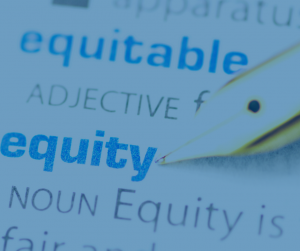The EAP and Why You Need to Participate in Its Creation
If you’re currently a UVic student, you’ve maybe heard of the Reflection and Challenge Committee (RCC), and the development of UVic’s Equity Action Plan (EAP) or at least received an email inviting you to participate in the ongoing consultation and engagement process.
But what are the RCC and the EAP? And most importantly, why should you participate in the consultation or engagement process?
What is the RCC?
The Reflection and Challenge Committee is a combination of 25 UVic staff, faculty, and students (2 graduate students and 5 undergraduate students (including me!)).
There are plenty of ways to categorize us and explain how or why we were selected. But I like to think that we are a group of perfectly imperfect members who, despite our differences, share a lot in common. Like how we all see the need for change at UVic and strive to learn more in order to help lead that change.
The RCC was formed in April 2021 to lead the co-creation of the EAP. We’ve met almost every month since then and have learned, reflected, assessed, aspired, planned and, as of January, initiated an engagement process that consists of four phases.
What is the Equity Action Plan, and why is UVic creating it?
UVic currently has a few institutional plans, and each was created with help from (or consultation with) multiple UVic community members, staff, faculty, students, stakeholders, etc. An institutional plan states a purpose, actions, and outcomes with a timeline based on my understanding.
Most of UVic’s plans have taken equity considerations into account. Still, none focus on how our university will advance equity, diversity, inclusion, and anti-racism. The EAP will help fill this gap.
Who’s behind the effort of creating the EAP?
• Reflection and Challenge Committee (RCC) Members – leaders of the co-creation of the EAP
• Equity and Human Rights (EQHR) – administration and communication support
• Executive Council – the approving authority of the EAP and the RCC’s advocate
And lastly (and most importantly),
You! – as part of the UVic community. Because creating an institutional plan without considering the thoughts, experiences and aspirations of the people who interact with and are impacted by the institution’s decisions would be counterproductive (and also useless).
Why do I think participating in the EAP engagement is essential?
Equity, diversity, inclusion (sometimes referred to as EDI) are topics that some students (or people in general) are hesitant to engage with.
Maybe it’s because of a fear of not knowing the “right” words or feeling as if the issues don’t directly impact them.
Personally, I identify as a lot of things (a person of colour and a woman, to name a couple). I’ve often felt like there was always someone more articulate, more knowledgeable or more marginalized than me who could better speak to the importance of EDI.
But I’ve come to realize that my (and your) voice, opinions, and thoughts matter. And yes, that’s the cheesiest thing, but hear me out.
- Your experiences, concerns and thoughts are best articulated by you!
- Imagine what the world would be like if everyone were willing to advocate for themselves, their friends and their community. By listening to a diversity of ideas and lived experiences at UVic – think of how many more people would feel like they belong.
So how can I participate?
Now, if you’re still thinking by this point in the post – yes, I know my voice, opinions, thoughts… etcetera matter, but I don’t want to say something that’s not well informed.
During this phase of the Equity Action Plan engagement, we’re looking to hear about the barriers to equity, diversity and belonging that you’ve experienced or witnessed at UVic. Participating isn’t about saying the right thing – it’s about sharing your ideas and stories.
As March comes to an end, you can choose to share your experiences at UVic through conversation cafés and/or anonymously through an online survey. What a perfect time to get a start on learning, reflecting and sharing.
A conversation café is a guided conversation. You can attend one being hosted by Equity and Human Rights or hold your own with a group of friends, classmates, or a club. The online guide has discussion questions and an email where you can send a summary of your discussion and input. Learn more here.
The online survey contains demographic questions, approximately seven questions on identifying barriers and space for additional comments. The survey takes about 5 minutes to complete. How convenient is that?
This third phase of the engagement process ends at the end of March, which gives you less than a week to participate!



